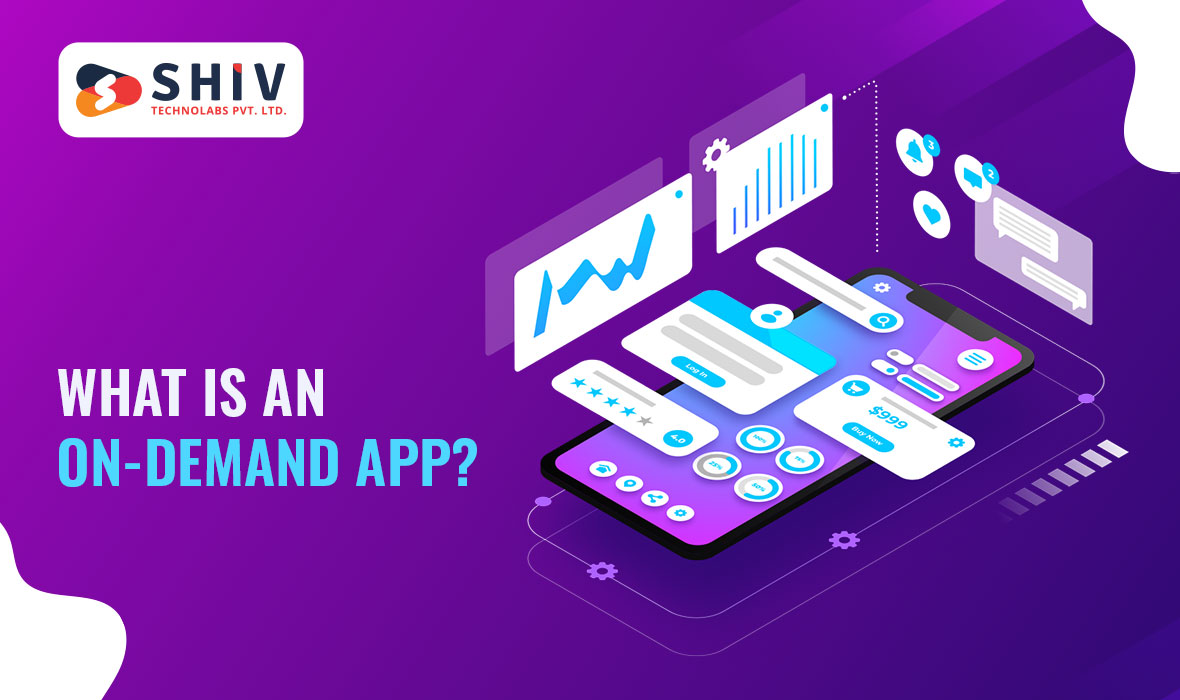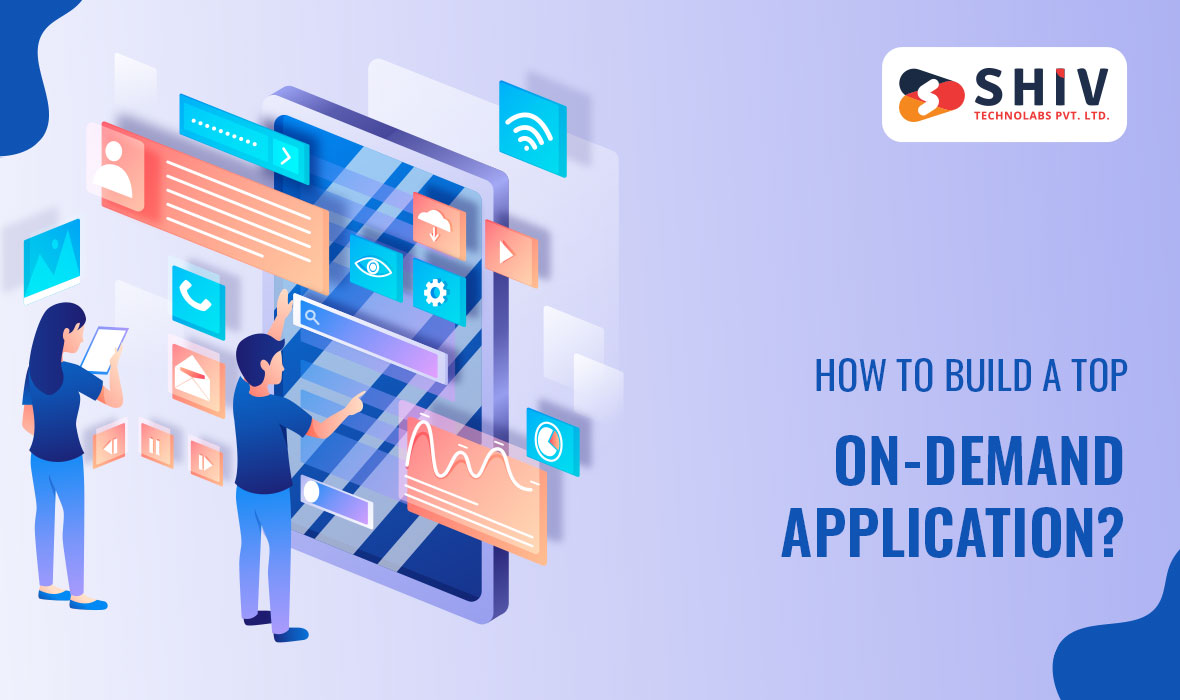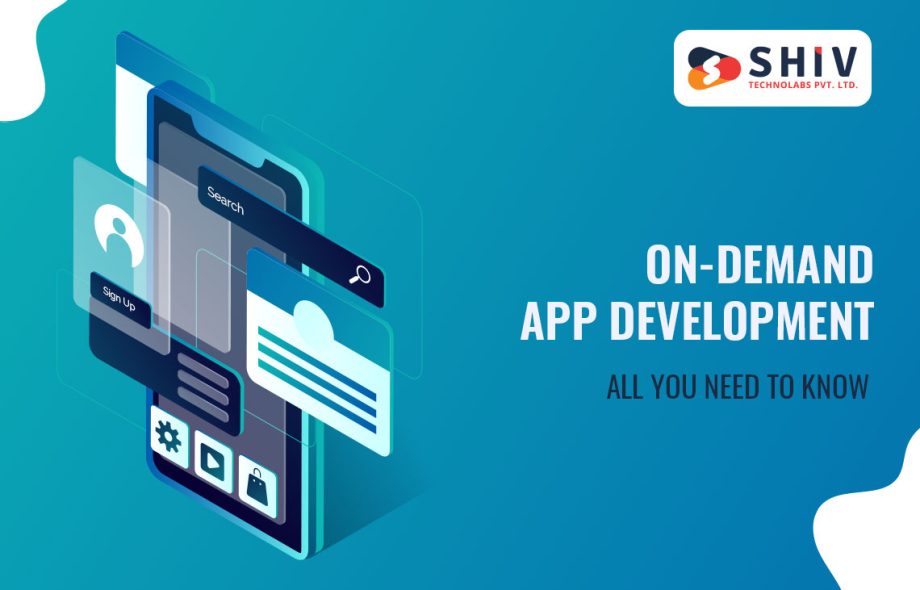Instant access to goods and services has become a requirement in today’s fast-paced digital age. On-demand apps have transformed many sectors by enabling rapid access to items and services with a few smartphone taps. The market for on-demand apps and websites will be worth $335 billion by 2025, according to the most recent data from PwC.
On-demand app development services meet modern users’ dynamic needs by providing seamless access to services and products, meeting business paradigms. On-demand apps have changed how businesses and consumers connect with transportation, food delivery, household services, and healthcare. In this article, we learn more about on-demand app development.
What is an on-demand app?

What is an on-demand app?
On-demand apps enable consumers to order or schedule services or items from a firm immediately. Technology has solved many common problems, allowing users to live better and as they like. This freedom comes from on-demand delivery app development.
On-demand apps connect customers and vendors to meet their needs on an app-based platform. Thus, diverse on-demand apps serve multiple functions, including technology development.
Types of on-demand apps
Based on the services and audience, on-demand apps can be classified. On-demand apps fall into three main categories:
Business to consumer (B2C)
The business-to-consumer (B2C) on-demand delivery software streamlines the process of companies selling products or providing services to consumers. This kind of app is used by certain eateries to handle customer service, such as Domino’s and Starbucks.
Business to business (B2B)
Many companies rely on business-to-business (B2B) on-demand delivery apps to facilitate logistics and daily operations by linking them directly with other companies. It is well known that business-to-business (B2B) on-demand apps facilitate the operations and logistics of other organisations.
Consumer to consumer (C2C)
Users and service providers can transact directly with one another using consumer-to-consumer (C2C) or peer-to-peer (P2P) on-demand delivery applications. Apps that provide consumer-to-consumer (C2C) on-demand delivery, such as Amazon, Etsy, and Flipkart, have one million daily users.
How to build a top on-demand application?

How to build a top on-demand application?
Market research:
For any on-demand service, diligent market research is a must, including discovering the demand, assessing competitors, and studying users’ preferences and pain points.
Define your value proposition:
Define how your on-demand software solves the problem or satisfies the demand better than the existing options.
Choose the right technology stack:
Choose a suitable technical stack and framework that fits with app needs, and scaling purposes, and within your budget limits.
Design user-friendly interfaces:
Develop interfaces which will put the simplicity, efficiency and accessibility of both service providers and users as the first consideration.
Develop core features:
Introduce user registration, service listing, booking management, real-time tracking, payment processing with secure payment methods, and feedback mechanisms.
Implement robust security measures:
Implement strict data protection measures to safeguard user data, payment transactions, and communications using encryption techniques, authentication and data privacy rules.
Test and iterate:
Perform intense testing on multiple platforms and devices to identify and fix glitches, user interface flaws, and performance issues. Iterate your app by involving the users’ feedback to increase the functionality and the user experience.
Strategically launch and market:
Develop a plan to launch the app to market. Utilize social media, app store optimization and influencers to attract users and promote your app.
Provide excellent customer support:
In an effort to provide a satisfactory customer experience, respond to any issues and concerns promptly through chat, email, and phone.
Why are on-demand apps popular?
On-demand apps are popular for numerous reasons:
Convenience:
On-demand apps help to gain immediate access to services or products, removing time-consuming procedures and waits.
Efficiency:
Applications assist in the delivery of services by reducing delays and better utilising resources, thus speeding up the pace and efficiency of service provision.
Transparency:
On-demand apps provide timely tracking and updates, allowing a user to follow his requests and transactions.
Cost-effectiveness:
On-demand apps provide price competition and discounts and hence, the services are more affordable and accessible now.
Conclusion
Today’s on-demand apps have transformed the world of business and consumer services delivering unparalleled convenience, efficiency, and range of services to the customers. Implementing effective on-demand platforms tailored to the changing needs of digital consumers will be a competence of entrepreneurs, who know on-demand app development concepts and best practices.
Shiv Technolabs excels as an on-demand app development company, creating innovative solutions dedicated to clients’ needs with precision and expertise. They will help you bring new innovations and growth to your business using the full potential of on-demand app development.



 :
:









